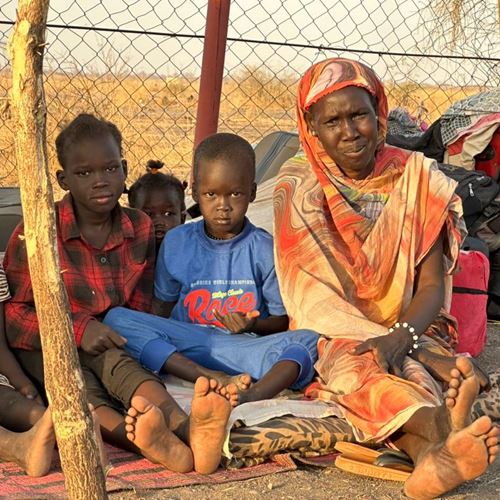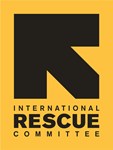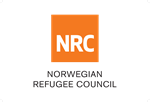The Inter-Agency Working Group
The Inter-Agency Working Group is a regional coordination and advocacy platform of NGOs working in East and Central Africa.
Nairobi, 19 September 2023 – The Inter-Agency Working Group for the East and Central Africa region is deeply concerned about the escalating humanitarian crisis in Sudan and the region, and the slow pace of global response. We call on the international community to respond urgently and comprehensively by providing much needed flexible funding and by urging all parties to the conflict to protect civilians, aid workers, and health facilities, and to remove barriers to the provision of life-saving humanitarian aid. The Sudanese people are facing unimaginable suffering, and the cost of not taking decisive action is simply too high.

The situation in Sudan is deteriorating in front of our eyes, with airstrikes and fighting increasing in the capital, Khartoum, and in Kordofan, Blue Nile and Darfur, resulting in multiple civilian casualties; in Darfur this is compounded by horrific reports of escalating inter-ethnic violence. Thousands of cases of conflict-related sexual violence and other human rights violations have been reported from across the country. The health system is on the verge of collapse, resulting in further increased mortality. All this, together with unprecedented food insecurity, malnutrition and displacement, has left half of the population (nearly 25 million people) in urgent need of assistance.
More than twenty million people, over 42% of the population, are now estimated to be facing crisis- or emergency-levels of food insecurity. With the 2023 planting season having been disrupted due to the conflict and the price of staple foods increasing by up to 200%, it is anticipated that from October the number of food-insecure will be the highest ever recorded for a post-harvest season in Sudan. No other country in the world currently faces this level of emergency food insecurity.
The conflict has driven enormous displacement: since the outbreak of the violence, over 1 million people have been displaced to neighbouring countries, adding to the pre-existing caseloads. Over 4 million people have been newly displaced within Sudan, adding to the 3 million individuals that were already displaced before the start of the current conflict.
Children are bearing the brunt of this crisis, with 3.4 million acutely malnourished children between six months and five years of age. In recent weeks, organisations working on the ground have witnessed a sharp surge in cases of Severe Acute Malnutrition, a major killer of children under the age of five. Children have also lost access to education and are at heightened risk of forced recruitment and other protection issues.
The cost of inaction in the face of ever-growing needs cannot be understated. Innocent lives are being lost daily because of hunger, lack of access to essential healthcare, and violence. Yet five months into the conflict, humanitarian organisations still face immense difficulties reaching populations with much needed supplies and services. Efforts to move essential food and medicine inside the country are being impeded by slow approvals and threatened by attacks and looting. Aid workers themselves remain the target of attacks, with 19 aid workers killed this year.
Despite all these challenges, NGOs have, since the start of the conflict, been working across all 18 states in Sudan to address the needs of around two million people, including by providing essential health and nutrition services, clean drinking water, and distributing food, as well as seeds for farmers. Volunteer-led community neighbourhood groups (commonly known as Emergency Response Rooms) are also providing critical frontline assistance - including by ensuring hospitals and health centres remain operational and distributing essential food supplies. These community groups have been able to access areas international organisations are currently unable to get to. But more support is urgently needed.
Inaction on this humanitarian crisis not only means prolonged suffering for the Sudanese people but also has far-reaching consequences for regional stability and security. The one million people displaced into Chad, Egypt, South Sudan, Ethiopia, and the Central African Republic are putting additional pressure on these neighbouring countries, straining limited resources and triggering potential social and political tensions. Several of these countries face their own humanitarian crises, which were already severely under-funded.
We call on the international community, including governments and international organisations to urgently prioritise the crisis in Sudan, and fund a comprehensive response, allowing the recently announced scale-up to be properly implemented. The revised Sudan Humanitarian Response Plan, which aims to provide life-saving assistance and protection services to 18.1 million people, remains grossly underfunded, with only US$685.9 million received out of the US$2.6 billion required (or 26.7%). It is critical that we urgently release additional funding to humanitarian organisations working on the ground. That funding should be bold and flexible, to allow organisations to find innovative ways to reach populations in need, including by providing funds to frontline community-led groups and to cover the increased cost of operating in such a dangerous and volatile environment. Funding from a diverse range of sources is needed in order to support the rehabilitation of health and education facilities, and their on-going functioning.
We also urge governments to actively engage in diplomatic efforts to not only bring an end to the conflict, but to also ensure that humanitarian aid can reach those who need it the most. This includes removing barriers to the movement of aid staff and supplies both within the country and across borders, and ensuring the safety and security of aid workers, and of health facilities.
We cannot afford to fail the people of Sudan as they face one shock after another. The time to act is now, and we must come together to ensure their protection, well-being, and dignity. Let us show our solidarity and commitment to humanity by standing alongside those most in need and working to build a brighter and more secure future for Sudan and the entire region.
The Inter-Agency Working Group is a regional coordination and advocacy platform of NGOs working in East and Central Africa.













